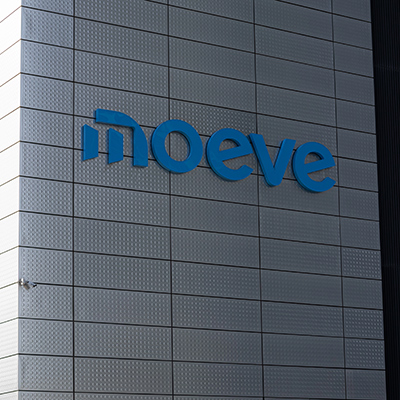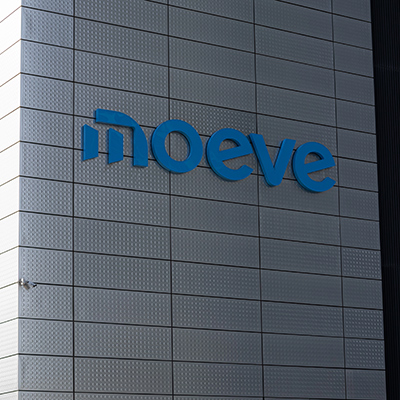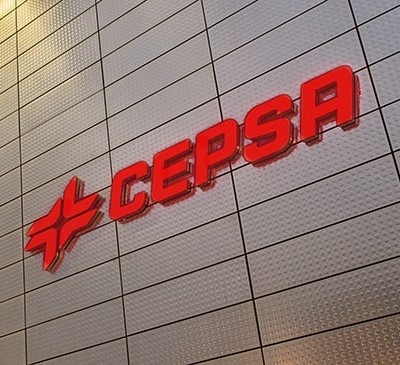- CCS Net Income reached €534m in the first nine months of the year versus €295m in the same period in 2021 in a context of high volatility in global energy markets. IFRS Net Income in the nine months to September was €982m, up from €498m in the same period of 2021, offsetting the €810m net loss registered in 2020.
- In the third quarter, CCS Net Income reached €71m compared to €112m in the same period of 2021 and €405m in the previous quarter, reflecting slower global economic growth, high natural gas prices and declining refining margins compared to Q2 2022.
- CCS EBITDA was €2,492m in the nine months to September versus €1,346m in the same period last year, of which 38% was generated domestically. During the quarter, EBITDA generated in Spain was approximately €100m versus the €650m contributed by businesses abroad, reflecting declining refining and chemical margins, the negative impact of the fuel discounts for the company’s customers and the general economic slowdown.
- Cash flow from operations before working capital in the first nine months of the year stood at €1,476m, a material improvement versus the €1,155m in same period of 2021, although impacted by significantly higher tax payments, especially in Upstream. During Q3, there was additional working capital consumption of €105m mainly due to higher gas inventory levels and prices.
- Cepsa contributed €3,522m in taxes in Spain during the first nine months of the year (€2,901m during the same period of 2021), of which €1,766m were borne by the Company and €1,756m collected on behalf of the Spanish tax authorities.
- Cepsa continues to offer special fuel discounts to its customers of up to €50 cts/l, including the €20 cts/l offered by the Government, and will continue doing so until the end of the year. Up to September, total savings offered by Cepsa to its customers reached €88m.
- Continuing to deliver on its Positive Motion strategy, in October Cepsa signed an agreement with the Port of Rotterdam to create the first green hydrogen corridor between northern and southern Europe and converted its benchmark €2.0bn syndicated revolving credit facility into a sustainability-linked financing, including carbon and gender diversity targets.
“Cepsa delivered robust results in a volatile trading environment with significant swings in gas prices. Q3 saw refinery margins return to more normalized levels whilst the economic slowdown in Europe has started to impact our Chemicals margins and volumes. Regulatory volatility continues to cloud the near-term outlook with high levels of uncertainty regarding the nature and quantity of windfall taxes under consideration.
Illustrated by solid results year-to-date, our strong and diverse portfolio continues to underpin the investments we are making as we put our Positive Motion strategy to work to position Spain and Portugal as leaders in the energy transition in Europe, providing green hydrogen and biofuels to the whole continent. We are making great progress as demonstrated most recently by our agreement with the Port of Rotterdam to create the first green hydrogen corridor between northern and southern Europe, one of many initiatives which will put Cepsa at the forefront of a sustainable future for Spain and Europe’s energy needs.
As we look forward, Cepsa is well positioned to continue to deliver on our strategy, making the energy transition and Europe’s long and complex journey to energy independence and net zero a reality."
Market Environment
Crude prices during the quarter decreased to an average of 100.9 $/bbl (vs 113.8 $/bbl in Q2’22 and 73.5 $/bbl in Q3’21) mainly as a result of a worsening demand outlook following global economic concerns derived from surging energy costs in Europe, persistent high inflation and the steep rise in interest rates. Although OPEC+ agreed to reduce quotas by 2 Mbbls per day in its most recent meeting, market reaction to this reduction in supply has been subdued giving an indication to the significance of demand pressures from global economic woes.
Refining margins were also down during the quarter, back at more normalized levels, with Cepsa’s average margin at 7.6 $/bbl (vs 19.1 $/bbl in Q2’22 and 4.2 $/bbl in Q3’21), mainly derived from higher natural gas prices and lower middle distillate cracks, in a still highly volatile environment.
As the Ukraine crisis endures, gas prices in Europe have remained extremely variable fluctuating at abnormally high levels, with TTF reaching an all-time peak in August of €350/MWh and an average for the quarter of €196.2/MWh (vs 95.6/MWh in Q2’22 and €47.4MW/h in Q3’21). Gas prices are expected to continue to be elevated in the foreseeable future, a view that is already impacting European economies and taking a toll on economic growth and outlook in the region.
Spanish electricity pool prices remained high, although decreased somewhat vs the previous quarter, registering an average of 146.3 €/MWh in Q3’22 (vs 182.8 €/MWh in Q2’22 and 117.8 €/MWh in Q3’21).
Results Breakdown
During the quarter, Cepsa continued to register strong results, although somewhat lower when compared to the peak registered in the previous quarter. Cepsa’s Upstream business delivered another quarter of sustained positive performance, whilst the Energy and Chemical businesses were affected by record-high gas prices and the latter, by lower demand. By division:
- Energy. (Energy Parks, Commercial & Clean Energies, Mobility & New Commerce and Trading). CCS EBITDA for the segment during Q3 stood at €117m (vs €620m in Q2’22 and €184m in Q3’21), mainly as a consequence of the drop in market refining margins affecting the Energy Parks business. Refining margins during the quarter returned to more normalized levels, averaging 7.6 $/bbl with utilization rates at 87%. Aggregated Commercial product sales performed positively, increasing by 5% versus Q2’22 boosted by the summer holiday season, although profitability of the Mobility business was impacted by the extraordinary discounts being offered to our customers. The Trading business benefited from market opportunities underpinning a very positive performance.
- Chemicals. Lower results were delivered during the quarter due to decreased sales volumes and margins under pressure, especially in the LAB and Phenol/ Acetone segments, with CCS EBITDA of €96m (vs €106m in Q2’22 and €124m in Q3’21). LAB volumes decreased during the quarter compared both to the same period last year and the previous quarter, although margins remain robust with higher energy costs being offset by lower supply costs. The Intermediate segment had a mixed performance, with solvents increasing volumes and EBITDA versus Q2’22 whilst the Phenol/Acetone business was impacted by softer demand as global economic growth slows. Margins remained under pressure during the quarter due to market oversupply, especially in Europe and China.
- Upstream. Sustained positive performance was seen, with CCS EBITDA in the quarter of €575m (vs €438m in Q2’22 and €226m in Q3’21) mainly as a result of the continued increase in production to 86.5 kbopd (+7% vs Q2’22 and +13% vs Q3’21) and elevated crude prices. Cash conversion of this business, however, was somewhat modest due to the high tax payments related to the present crude price scenario.
During the quarter, Cepsa continued to achieve significant milestones as part of its 2030 Positive Motion strategy, through which it plans to invest between €7-8 billion over the course of the decade to transform into a sustainable mobility and clean energy company, with a major focus on biofuels and green hydrogen.
As part of its transformation, in July Cepsa Química started to supply NextLab linear alkylbenzene (LAB), a new range of sustainable products which include renewable and recycled raw materials. In addition, Cepsa acquired the 28% stake which it did not own of its LAB Chemical subsidiary in Brazil, Deten Química, from Petrobas, reinforcing its presence as sole LAB producer in the country, an attractive market with high annual growth rates.
In September Cepsa started the production of advanced biofuels (2G) at its Huelva Energy Park with used cooking oils, which can reduce emissions by up to 80% over their entire life cycle (compared to conventional fossil fuels).
Among major milestones since the close of the quarter, Cepsa announced in October an agreement with the Port of Rotterdam to create the first green hydrogen corridor between the North and South of Europe, ensuring a supply chain of this product between Algeciras and Rotterdam, two of Europe’s key ports. The deal strengthens Cepsa’s ambition to become a leading player in green hydrogen production in Europe.
In line with the Company’s commitment to its decarbonisation and overall ESG strategic goals, in October Cepsa converted its benchmark €2.0 billion syndicated revolving credit facility into a sustainability-linked financing, including carbon and gender diversity targets. Cepsa agreed, together with its bank syndicate, to donate 100% of the interest adjustment to environmental and social projects, making it a unique combination in syndicated markets. This transaction illustrates the continued support Cepsa receives from the financial community, their confidence in its Positive Motion strategy and commitment to the energy transition.
Also during the month of October, Cepsa completed the first advanced maritime biofuels trial in Spain. The tested 2G biofuel can be used in ships without any modifications and has the advantage of being practically free of sulfur oxides (SOx) and the ability of reducing CO2 emissions by up to 85% compared to traditional fossil fuels.



